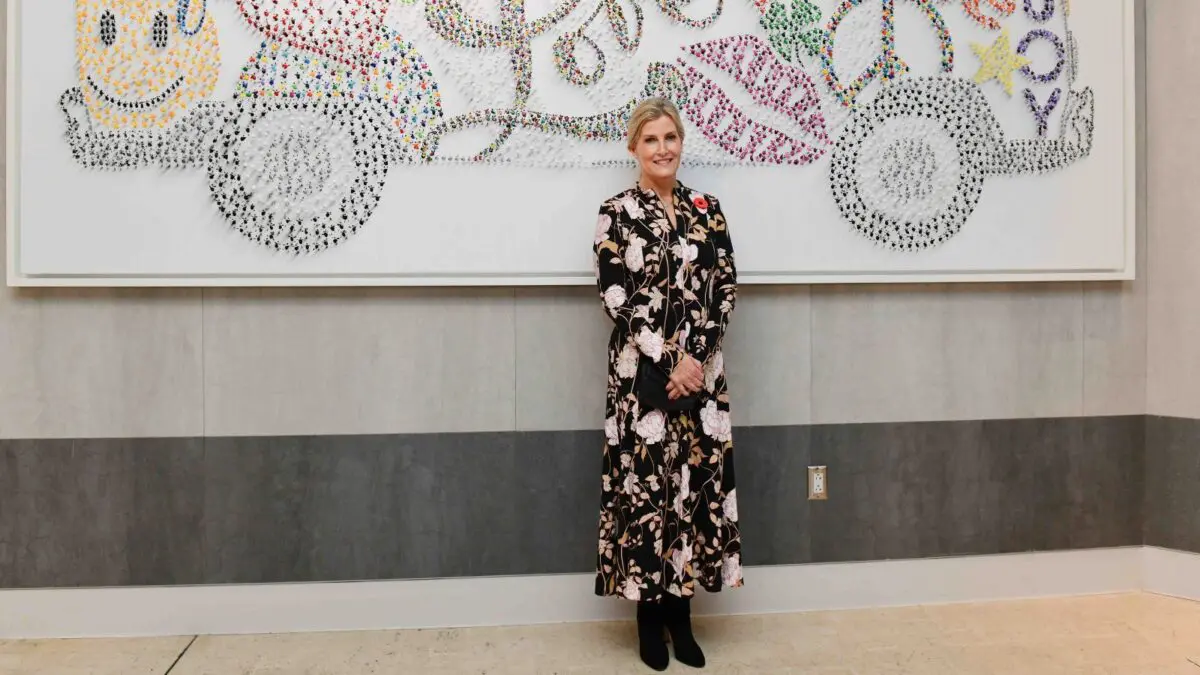“To say it was challenging would be an understatement,” says Eden. “I went through moments of such pain I almost wished I would die so it would stop.”
Sickle cell disease is a genetic condition affecting the red blood cells, which can distort into a sickle or crescent shape. This disorder affects blood circulation and the blood’s ability to carry oxygen through the body.
When in crises, patients can develop anemia, swelling, fatigue and, in many cases, feel immense pain.
Growing up in Nigeria, England and in Canada, Eden had constant crises. He remembers his joints constantly aching and, as a teenager, suffering with priapism – a very painful condition in the pelvic area.
He says only his faith and the support of his family got him through that period of his life.
“I was blessed with supportive parents, family and an aunt who was a nurse in Nigeria and helped us navigate a healthcare system that wasn’t reliable,” explains Eden.
In London, England, things were a bit better, but it wasn’t until 2007, a year-and-a-half after Eden had moved to Toronto, that he was referred to the Red Blood Cell Clinic at Toronto General Hospital.
At the clinic, he started getting monthly, automated red blood cell exchanges – a procedure that filters Eden’s sickled cells and transfuses new blood into his body. The treatment is recommended for sickle cell patients with severe complications. It treated the priapism and helped Eden avoid pain crises.
“Since I started getting treated here, my life changed,” he says. “I’m able to sleep properly, to work, to be with my family. I’m healthy, for the most part.”
Planning for parenthood
A big concern for Eden when entering adult life was to make sure that he wouldn’t pass sickle cell disease to his children. Having lived through so many pain crises and under the stigma of a rare genetic condition, this was very important to him.
Eden’s parents did not have sickle cell disease, but they carried the trait and were unaware of how devastating sickle cell disease could be.
That is why Eden advocates for informed reproductive decisions for people with the disease or with the sickle cell trait, and advises that people be tested for the trait, especially if they are of African or Middle Eastern descent. These populations have a high prevalence of the sickle cell trait and most people who have it are unaware because they are healthy.
Informed reproductive decisions can have a big impact in controlling the disease. In Canada, around 5,000 people live with sickle cell disease and this number is rising as an estimated 120 babies are born with the disease across the country each year.
“My parents never knew the impact this could have on a child,” he says. “It’s a very difficult condition to live with and it can even be isolating. If people could know how it feels, they would avoid the risk of passing it to their kids.”
Although it seemed a bit weird, every time Eden started dating a girl he asked her for her genotype status. Since he has the disease, the only way to completely avoid passing it along was by having a partner that didn’t carry the gene.
Susan, his now wife and mother of his child, got tested more than once – when they were dating and before they got pregnant, so they could be certain she didn’t have the trait.
Eliana was born this March. As expected, she carries the gene from her dad, but doesn’t have sickle cell disease. Her name, as Eden explains, means “My God has answered me.”
Raising awareness
Earlier this year, the Canadian government recognized by law June 19 as National Sickle Cell Awareness Day – coinciding with World Sickle Cell Day celebrated on the same day by the United Nations, World Health Organization, UNESCO and other international organizations and advocacy groups.
For this date, Eden wishes to help raise awareness about the disease.
“Studying, having a career and a social life is usually very challenging for someone with sickle cell disease,” he says. “I think it is a challenge especially in the corporate world, to make companies more aware and accommodating for a person living with this condition.”
Kate Uchendu, Nurse Practitioner in the Red Blood Cell Clinic, says it is important to increase awareness about sickle cell even among healthcare providers.
“It is remarkable how little people know about sickle cell disease,” she says. “This condition can be very debilitating and it is critical we are all aware of the burden families and patients carry”.
“Even here at UHN and in other hospitals, awareness is not at the level that it should be. It is important to have days like this and events to share information about this condition.”
To help ensure UHN’s teams are more familiar with sickle cell disease across different sites and departments, the Red Blood Cell Clinic is preparing a series of activities today, including an information booth with prizes and a lecture by the head of the clinic, Dr. Richard Ward. Everyone is welcome to participate.
Toronto General’s Red Blood Cell Clinic is the largest of its kind in North America. It currently sees 1,400 patients, 800 of them being treated for sickle cell disease.


